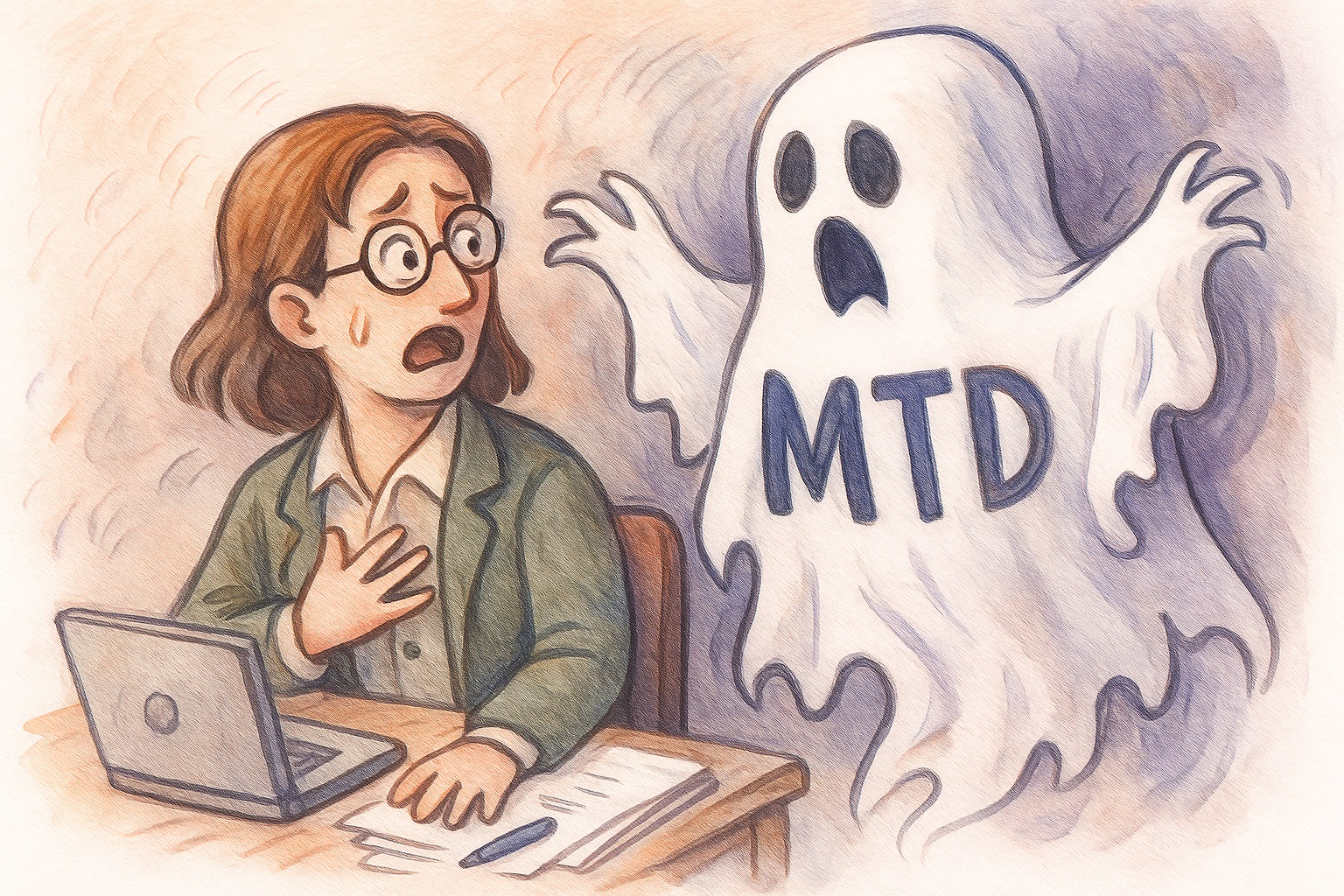You'll Still Need People – But Who Is the Human-in-the-Loop?
Automation is transforming the way businesses operate, offering unprecedented efficiencies and accuracy. Yet, even in this new age of technology, the need for human expertise remains indispensable. As bookkeepers and accountants, you’re at the forefront of this change, integrating cutting-edge tools that streamline processes and reduce manual tasks, for your practice and your client businesses too. But there’s a vital role you still play in this automation-driven world, one that is increasingly referred to as the “human-in-the-loop.”

What is the Human-in-the-Loop?
The term “human-in-the-loop” (HITL) refers to a model of automation where human intervention is integrated into the workflow, ensuring that machines and systems perform optimally while also allowing for nuanced decision-making or exception-handling that only a person can provide. In other words, while technology handles routine and repetitive tasks, a human remains essential for overseeing processes, making judgments, and addressing any complexities or exceptions that arise.
For bookkeepers and accountants, this means that while software and Bots can automate data entry, reconcile accounts, and generate reports, your expertise can still be essential for interpreting results, making strategic decisions, and ensuring compliance with regulations, or even more importantly, to provide value-adding input.
Why is the Human-in-the-Loop Important?
1. Accuracy and Compliance
Automated systems can handle vast amounts of data quickly, but they aren’t immune to errors, especially if the data input is flawed or if there are unforeseen changes in regulations or business requirements. A human-in-the-loop ensures that the data is accurate, compliant, and aligned with the specific needs of a business, so that Bots can get on with the work.
2. Handling Exceptions
Not every financial situation fits into a neat, pre-defined box. When anomalies or unique situations arise, automated systems may struggle. A human can step in to assess and resolve these issues, ensuring that nothing falls through the cracks.
3. Strategic Insights
While automation excels at processing data, it doesn’t always replace the need for strategic thinking. Bookkeepers and accountants provide the insights that help businesses make informed decisions, something an algorithm can’t always fully replicate or replace.
When and How Does “HITL” Work Best?
Human-in-the-loop works best in scenarios where judgment, creativity, or complex decision-making is required. For instance, when reconciling accounts, automation can flag discrepancies, but it’s up to a person to investigate and understand the root cause. Similarly, when interpreting financial data to offer business advice, the human element is irreplaceable and valuable.
The key is finding the right balance. Automate tasks that are repetitive and time-consuming, but ensure that you are involved in the stages where oversight, interpretation, or decision-making is needed.
Tips for Making “HITL” Successful
1. Stay Informed
Keep up-to-date with the latest automation technologies relevant to your field. Understand what they can do and where their limitations lie, and build the human-in-the-loop into the new automated process, and the result will be greater than the sum of its parts.
2. Set Clear Parameters
Define the tasks that can be safely automated and those that require human intervention. This clarity will help you and your team work more efficiently.
3. Regular Audits
Conduct regular reviews of automated processes to ensure they are functioning correctly and delivering the expected outcomes. Make adjustments as needed to keep everything running smoothly.
4. Foster Collaboration
Encourage open communication between those managing the automated systems and those overseeing them. This ensures that any issues can be quickly addressed and that the system is continuously improved.
Training and Upskilling for the Future
As the landscape of bookkeeping and accounting evolves, so too must your skillset. Here are some areas where training and upskilling are essential:
1. Technical Proficiency
Familiarise yourself with the automation tools and software used in your industry or practice. Understanding how these systems work will allow you to better manage them and make informed decisions.
2. Data Analysis
With automation taking over routine tasks, your role will increasingly involve interpreting and analysing data. Training in data analysis will equip you to extract valuable insights and provide strategic advice to your clients or business.
3. Change Management
As systems and processes evolve, so will your workflow. Developing skills in change management will help you adapt smoothly to new technologies and ensure that your team does as well.
4. Cybersecurity Awareness
With increased reliance on digital tools comes the need for heightened cybersecurity. Understanding the basics of data protection and cybersecurity best practices is crucial in safeguarding sensitive financial information.
Supporting the Transition
Supporting the shift towards automation involves more than just learning new skills. It also requires a mindset that embraces change and innovation. Encourage your team to view automation as an opportunity to focus on higher-value tasks, rather than as a threat to their jobs. By positioning yourself as an expert in both traditional and automated processes, you’ll remain indispensable in the evolving landscape of bookkeeping and accounting.
Conclusion
Automation is reshaping the way bookkeepers and accountants work, but the role of the human-in-the-loop remains critical. By staying informed, upskilling, and strategically integrating automation into your workflow, you can enhance your efficiency while still providing the human insight that machines cannot replicate. Remember, technology is here to assist, not replace, and with the right approach, you’ll continue to be a vital part of your practices and clients’ success story.





Leave A Comment